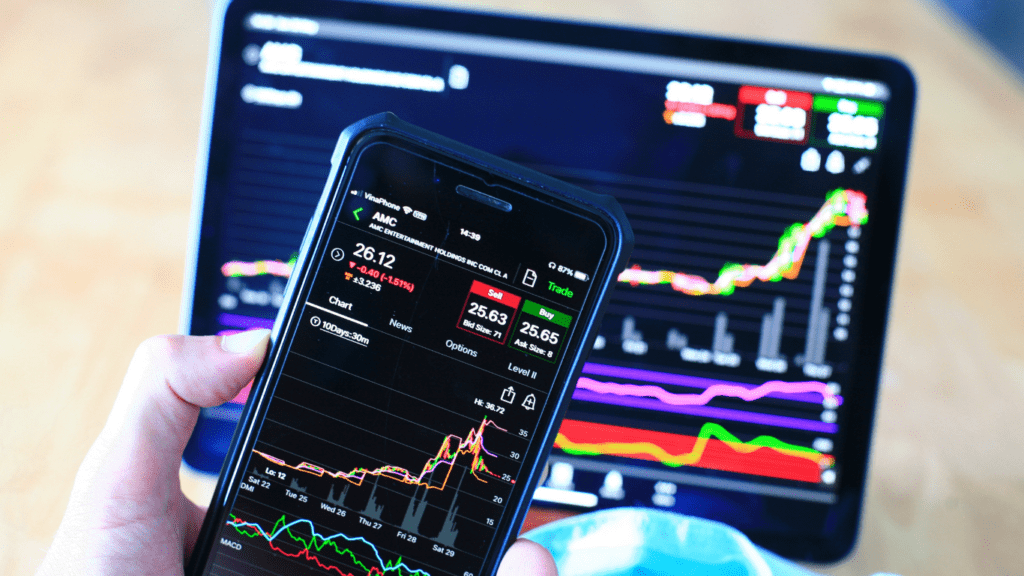In the fast-evolving world of cryptocurrency, security remains a top priority for investors and traders alike. As we step into 2024, the quest for the most secure crypto exchanges intensifies, with users seeking platforms that offer robust protection against cyber threats and hacks.
Navigating the vast landscape of exchanges can be daunting, but fear not, as I’ve delved deep into the realm of digital asset security to bring you insights into the most secure crypto exchanges of 2024.
From cutting-edge encryption technologies to stringent verification processes, these exchanges set the gold standard for safeguarding your investments. Join me on a journey through the top crypto exchanges that prioritize security without compromising on user experience.
Stay ahead of the curve and make informed decisions to protect your digital assets in the ever-changing crypto market landscape of 2024.
Overview of Crypto Exchanges in 2024
As I delve into the landscape of crypto exchanges in 2024, it’s evident that security remains a paramount concern for cryptocurrency traders. With the ever-evolving cyber threats and hacks, users are increasingly seeking platforms that prioritize their security and safeguard their digital assets.
In this section, I will provide a comprehensive overview of the top crypto exchanges that excel in security measures and offer a seamless trading experience to users. Let’s explore the cutting-edge technology and stringent protocols implemented by these exchanges to ensure the safety and confidentiality of users’ funds and information.
Top Criteria for Secure Crypto Exchanges
Advanced Security Measures
Ensuring advanced security measures is non-negotiable when selecting a crypto exchange for trading. Robust cybersecurity protocols, such as multi-factor authentication, biometric login options, and cold storage for storing digital assets, are essential features that top exchanges offer.
These measures significantly reduce the risk of unauthorized access and unauthorized transactions, safeguarding users’ funds effectively.
Regulatory Compliance
I’ll stress the significance of regulatory compliance when evaluating the security of crypto exchanges. Exchanges that adhere to stringent regulatory frameworks and compliance guidelines, such as KYC (Know Your Customer) and AML (Anti-Money Laundering) regulations, inspire trust among users.
By operating within legal boundaries, these exchanges not only ensure the security of transactions but also mitigate the potential risks associated with fraudulent activities and money laundering.
The Most Secure Crypto Exchanges in 2024
- Multi-Factor Authentication (MFA): Enhances security by requiring users to provide multiple forms of verification before accessing their accounts.
- Biometric Login Options: Utilizes biometric data such as fingerprint or facial recognition for secure and convenient logins.
- Cold Storage for Digital Assets: Stores the majority of funds offline, significantly reducing the risk of hacking and unauthorized access.
- Regulatory Compliance (KYC/AML): Adheres to Know Your Customer (KYC) and Anti-Money Laundering (AML) regulations to ensure transparency and enhance security protocols.
Comparing Security Practices Among Top Exchanges
Highlighting the security features of various crypto exchanges is crucial in ensuring the protection of users’ assets and personal information. In evaluating the security practices among the top exchanges in 2024, I focus on key criteria that distinguish the most secure platforms in the cryptocurrency market.
- Multi-Factor Authentication (MFA): Reinforcing user account security with MFA is a standard practice among top exchanges. By requiring multiple forms of verification, such as a password, OTP, or biometric data, MFA significantly reduces the risk of unauthorized access.
- Biometric Login Options: Enhancing security measures with biometric login options like fingerprint or facial recognition is increasingly common. Biometric authentication provides an added layer of protection by validating users’ identities through unique biological traits.
- Cold Storage for Digital Assets: Utilizing cold storage solutions for storing digital assets offline is a prevalent safeguarding practice. By keeping the majority of funds in cold wallets disconnected from the internet, exchanges minimize the vulnerability to online threats like hacking.
- Regulatory Compliance (KYC and AML): Adherence to regulatory frameworks such as KYC and AML requirements has become a hallmark of trustworthy exchanges. Implementing robust KYC processes and AML protocols not only ensures compliance but also fosters a secure trading environment by mitigating risks associated with money laundering and illicit activities.
While each crypto exchange may have its unique security approaches, considering factors like MFA, biometric authentication, cold storage, and regulatory compliance can guide users towards selecting exchanges that prioritize security and offer peace of mind in safeguarding their digital assets.


 Mary Whitley has been a vital force behind the success of Lend Crypto Volt, focusing on community engagement and user experience. With a passion for connecting people to information, she has worked tirelessly to ensure the platform provides relevant and accessible content for all users. Mary's commitment to fostering an inclusive environment has helped build a strong community of crypto enthusiasts, making Lend Crypto Volt a trusted source for those seeking to understand the cryptocurrency landscape.
Mary Whitley has been a vital force behind the success of Lend Crypto Volt, focusing on community engagement and user experience. With a passion for connecting people to information, she has worked tirelessly to ensure the platform provides relevant and accessible content for all users. Mary's commitment to fostering an inclusive environment has helped build a strong community of crypto enthusiasts, making Lend Crypto Volt a trusted source for those seeking to understand the cryptocurrency landscape.